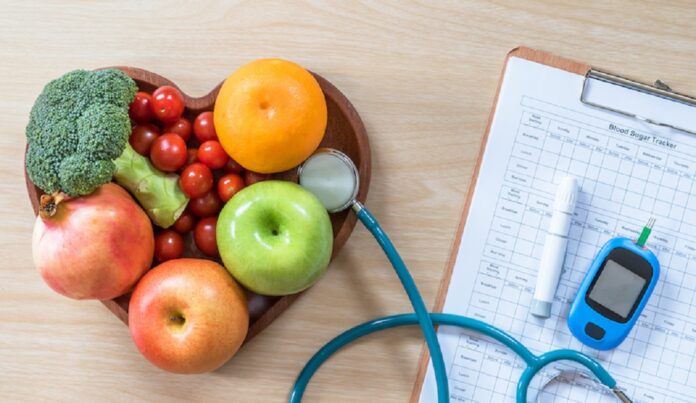
Table of Contents
Diabetes and Ramadan
Fasting during Ramadan is a great strain on the body, and since one does not drink and eat, as usual, it can lead to large fluctuations in blood sugar. If you have diabetes, you should talk to your doctor well in advance of Ramadan, so that you can fast in a safe and good way.
During Ramadan, there is a period of about 20 hours every day where one does not eat, drink or smoke. This means a longer period of time each day where the body does not absorb food as it normally does and that the body’s metabolism of nutrients is different than usual. This can cause you to experience blood sugar fluctuations, low blood pressure, and headaches. In addition, it is not uncommon to have stomach problems, such as a slow stomach or flatulence.
Fasting can be dangerous in unstable diabetes
Adult Muslims are required to fast if they are healthy. People who are excluded are children, the elderly, pregnant women, menstruating women, travelers, and people with acute and chronic diseases. If you use medication regularly and interruption or change in medication entails a serious health hazard, then you should not fast. This is especially true for people with type 1 diabetes or people with unstable diabetes.
It may well be that you have a strong and personal desire to fast despite chronic illness. It must be respected, but it is important that you are aware of the possible health risk you are exposed to. Therefore, contact your GP no later than 1-2 months before Ramadan and inform them that you intend to fast. Your doctor will examine your state of health, take blood samples and advise on the health risks of fasting. This way you can make an informed choice if you can fast in a safe and sound way.
It is often appropriate to change medication during Ramadan
Since you should not take medication during the hours you fast during the day, this means that many people must take their medication earlier or later than usual. If you usually take a medicine in the middle of the day, this must be changed to either late at night or early in the morning. This can be problematic, as there are some medications that should not be taken at the same time. This should be discussed with your doctor well in advance of Ramadan.
This is especially important if you are taking insulin. Your doctor may decide if you need to change your medication, for example, if you need to change the number of tablets or dose of insulin or the type of medicine. In addition, your doctor may recommend that you measure your blood sugar more often, as people with fasting diabetes are more likely to have low blood sugar. You do not break your fast if you measure your blood sugar. If you get too low blood sugar it can be very dangerous, and in such cases, it is necessary that you break the fast and eat as soon as possible.
Get enough to drink
It is always important that you make sure you get enough to drink so that you do not become dehydrated. For adults, it is normally necessary to drink at least 1 ½ to 2 liters every day. If Ramadan is added to the summer, if you have a physically demanding job or exercise more than usual, you may need more. It is recommended that you stop drinking water, but other beverages that contain sugar, such as mineral water and tea, are good alternatives. Juices and soft drinks that contain a lot of sugar should be avoided.
Have a balanced and nutritious diet
It is not a goal that you should lose weight when you fast. Make sure that the two main meals are balanced, healthy, and varied so that you get what your body needs in terms of nutrients. It may also be appropriate to eat some fruit or a handful of nuts as a snack this diet is also useful for men’s physical health also or get some pills like Fildena 100, Sildigra 100, or Prejac to enjoy your personal life.
There are many traditional foods that are high in fat and sugar, and that you should either try to avoid or consume in limited amounts during Ramadan. Examples of foods of this type are parathas, puri, samosa, pakora, ladoo, jelibi, and burfi.
Suitable sources of carbohydrates
Coarse grains, fruits, berries, nuts, and most types of vegetables contain suitable carbohydrates and fiber. Avoid or limit your intake of foods and beverages that are high in sugar, including soft drinks, desserts, white bread, and white rice.
Suitable protein sources
Fish, chicken, low-fat dairy products such as yogurt, nuts, and seeds are recommended. Avoid protein-rich foods that are high in saturated fat, including beef and lamb.
Suitable sources of fat
Unsaturated oils, such as olive oil, are recommended. Fish species that contain unsaturated omega-3 fatty acids, such as tuna, salmon, trout, and sardines, are also recommended. Avoid foods high in saturated fat, such as beef, lamb, sausages, and salami. The same goes for foods that are high in Tran’s fats, such as fast foods and margarine. Apart from this, it can be beneficial to eat foods that contain a lot of starch, including basmati rice, chappatis, naan bread, or dhal to stop/reduce the feeling of hunger.
Good advice during Ramadan
- Make sure you get enough rest.
- Eat high-fiber foods if you often have a slow stomach.
- Reduce smoking and coffee intake well before Ramadan – less caffeine and nicotine during the day can cause withdrawal and headaches if the body is used to a regular intake.
- Avoid prolonged stays in strong sun. Sweating increases fluid loss and can lead to dehydration.
- Exercise should be done with calm to moderate intensity.
















